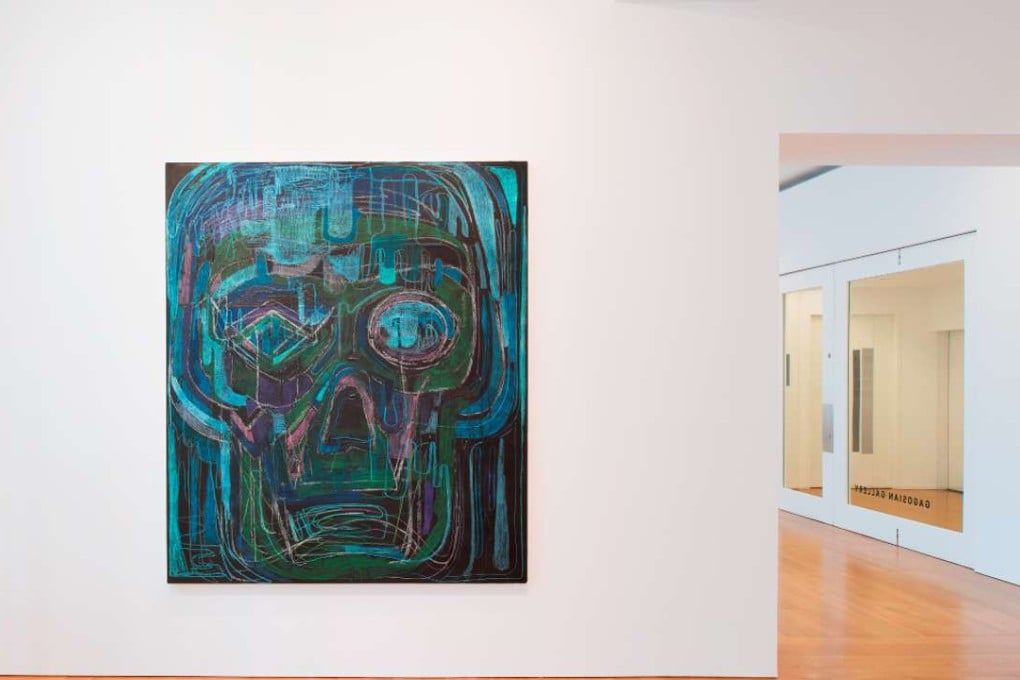The Collector | Gagosian Hong Kong shows first paintings of much collected sculptor Thomas Houseago
Yorkshire-born, Los Angeles-based artist’s paintings blend futurism, cubism and modernism. Knowledge of Houseago’s sculpture, inspired by primitivism of African and Oceanic art, provides a better understanding of exhibition

The paintings of Yorkshire-born, Los Angeles-based Thomas Houseago glide through a blend of 20th-century futurism, cubism and modernism. These are accomplished and informative studies accurately described in the title of the exhibition at the Gagosian Gallery. Despite a carefully unfinished quality, the nine large paintings exhibited as “Thomas Houseago: Psychedelic Brothers – Drawn Paintings” are not rapid-fire drawings or sketches, but fully resolved works in elaborate layers of pastel, crayon, pencils, oil and acrylic on canvas, particularly the complex “Psychedelic Brother III (blue architecture) (2016)”.

Houseago is a figurative sculptor who studied at Central Saint Martins, in London, and at De Ateliers, in Amsterdam, and lived in Brussels before relocating to LA in 2003. Sought after by collectors, his sculptures are generally large and completed with a team of assistants in an extensive warehouse in LA. His bronze pieces are cast in foundries across the United States.
At the 2011 Venice Biennale, his “L’homme pressé (2011-2012)”, a huge bronze of a man in a hurry, was displayed on the Grand Canal, outside the Venice museum of Christie’s owner François-Henri Pinault, as part of his collection.
Knowledge of Houseago’s sculpture, rarely seen in Hong Kong, provides a better understanding of this exhibition. The artist draws inspiration from the long history of sculpture, from Greek and classical human forms to stripped-down, simplified interpretations of the human figure and architecture in cubism and minimal modernism. Equally influential are his sculptural elders – Henry Moore, Jacob Epstein and Eduardo Paolozzi – and popular culture, including characters such as those from The Flintstones, Japanese anime and science fiction, often in the familiar profile of Star Wars’ Darth Vader.
However, it’s the “primitivism” of African and Oceanic art that is most clearly seen in his sculpture and in these drawn paintings.

